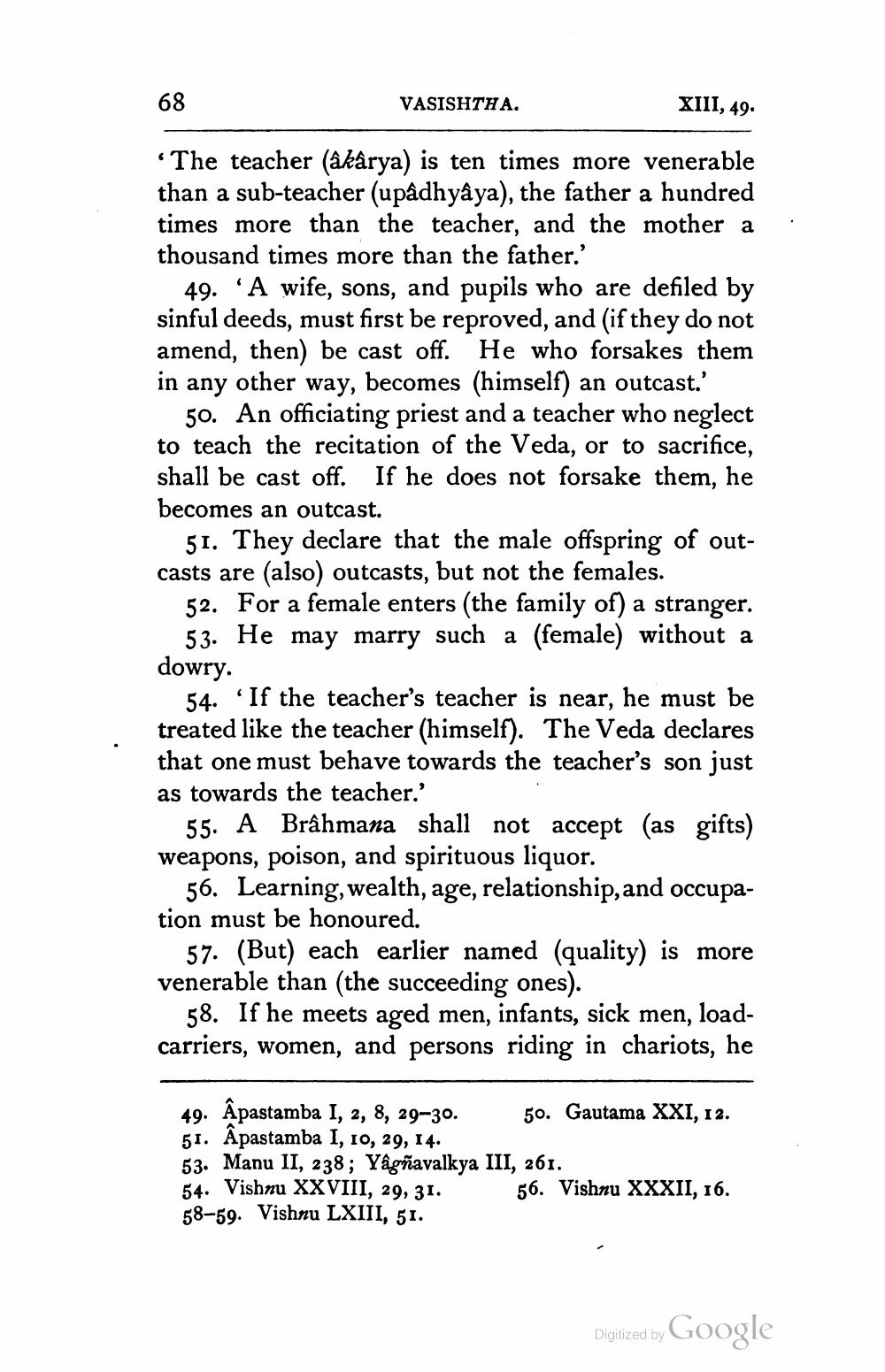________________
68
VASISHTHA.
XIII, 49.
:
The teacher (âkârya) is ten times more venerable than a sub-teacher (upâdhyâya), the father a hundred times more than the teacher, and the mother a thousand times more than the father.'
49. 'A wife, sons, and pupils who are defiled by sinful deeds, must first be reproved, and (if they do not amend, then) be cast off. He who forsakes them in any other way, becomes (himself) an outcast.'
50. An officiating priest and a teacher who neglect to teach the recitation of the Veda, or to sacrifice, shall be cast off. If he does not forsake them, he becomes an outcast.
51. They declare that the male offspring of outcasts are (also) outcasts, but not the females.
52. For a female enters (the family of) a stranger.
53. He may marry such a (female) without a dowry.
54. If the teacher's teacher is near, he must be treated like the teacher (himself). The Veda declares that one must behave towards the teacher's son just as towards the teacher.'
55. A Brâhmana shall not accept (as gifts) weapons, poison, and spirituous liquor.
56. Learning, wealth, age, relationship, and occupation must be honoured.
57. (But) each earlier named (quality) is more venerable than (the succeeding ones).
58. If he meets aged men, infants, sick men, loadcarriers, women, and persons riding in chariots, he
49. Âpastamba I, 2, 8, 29-30. 50. Gautama XXI, 12. 51. Apastamba I, 10, 29, 14. 53. Manu II, 238; Yâgñavalkya III, 261. 54. Vishnu XXVIII, 29, 31. 56. Vishnu XXXII, 16. 58-59. Vishnu LXIII, 51.
Digiized by Google




